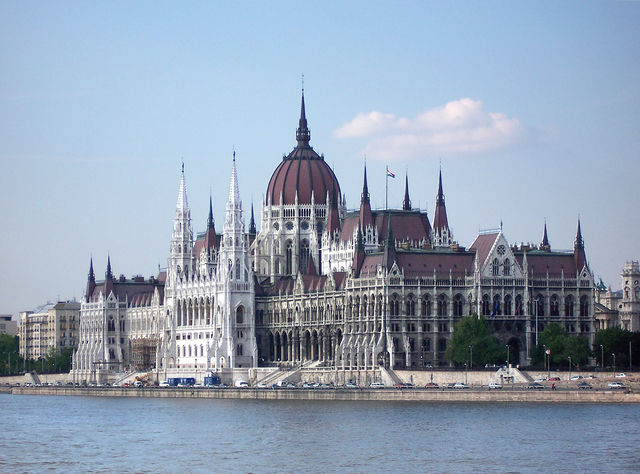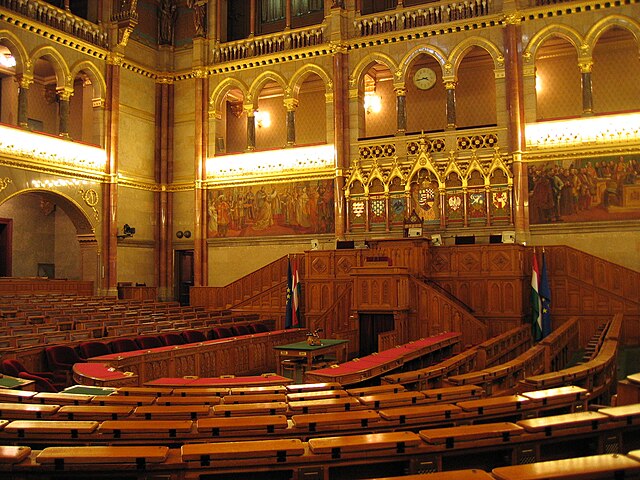Count Gyula Andrássy de Csíkszentkirály et Krasznahorka was a Hungarian statesman, who served as Prime Minister of Hungary (1867–1871) and subsequently as Foreign Minister of Austria-Hungary (1871–1879). Andrássy was a conservative; his foreign policies looked to expanding the Empire into Southeast Europe, preferably with British and German support, and without alienating Turkey. He saw Russia as the main adversary, because of its own expansionist policies toward Slavic and Orthodox areas. He distrusted Slavic nationalist movements as a threat to his multi-ethnic empire.
Gyula Andrássy
Gyula Andrássy in 1848
Andrássy in conversation with German Emperor Wilhelm I, 1872
Andrássy (in blue uniform centre) at the Congress of Berlin, 1878
The Diet of Hungary or originally: Parlamentum Publicum / Parlamentum Generale was the most important political assembly in Hungary since the 12th century, which emerged to the position of the supreme legislative institution in the Kingdom of Hungary from the 1290s, and in its successor states, Royal Hungary and the Habsburg kingdom of Hungary throughout the early modern period until the end of World War II. It was mainly held in big cities, traditionally in Pozsony, one of the most important Hungarian cities. The name of the legislative body was originally "Parlamentum" during the Middle Ages, the "Diet" expression gained mostly in the early modern period. It convened at regular intervals with interruptions from the 12th century to 1918, and again until 1946.
Diet of Hungary of 1830
Since 1902 the diet has been assembling in the Hungarian Parliament Building in Budapest
Assembly hall of the House of Magnates
Assembly hall of the House of Representatives








